IRGC Chief Warns Region Against Relying On Israel For Security
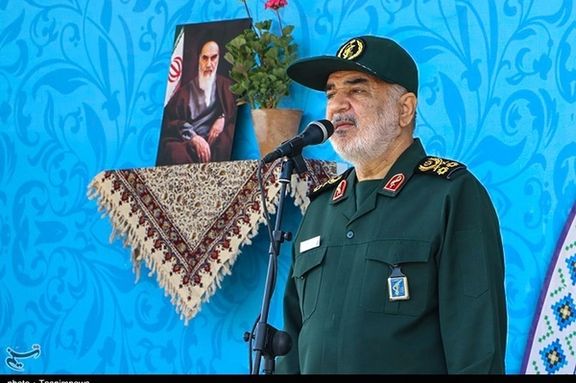
Iran has criticized Muslim countries for relying on Israel for their security, which it says cannot defend itself as the Jewish state is teaming up with regional countries against Iran.

Iran has criticized Muslim countries for relying on Israel for their security, which it says cannot defend itself as the Jewish state is teaming up with regional countries against Iran.
Revolutionary Guard’s commander Hossein Salami in a meeting with the visiting Chairman of the Joint Chiefs of Staff of Pakistan General Nadeem Raza Nishan on Tuesday, also said that “Israel is the enemy of the Islamic world and humanity.”
A military alliance is being formed in the region under the leadership of Washington with many Arab countries starting to coordinate with Israel as the member of CENTCOM, the US Central Command, covering the Middle East.
Seriously concerned about the growing ties, the Islamic Republic is repeatedly warning neighbors against allowing Israel to establish a presence in the Persian Gulf region.
Earlier in the day, Israeli Prime Minister Naftali Bennett addressed Iran saying, “You can no longer hit Israel indirectly and through proxies and think you’ll get away with it.”
The outgoing premier said “wreaking havoc in Tehran” is not a policy, “Our policy is, if you mess with Israel, you’ll pay a price,” apparently referring to air raid sirens that sounded in Jerusalem and Eilat last week, reportedly triggered by a cyberattack possibly by Iranian hackers. On Monday, Iran’s major steel companies were hit by a cyberattack.
Israel intends to ask the US to approve the delivery of an Israeli laser-powered air defense system to Arab countries aligned against Iran, including Saudi Arabia, as part of a US-led effort to establish the regional alliance.
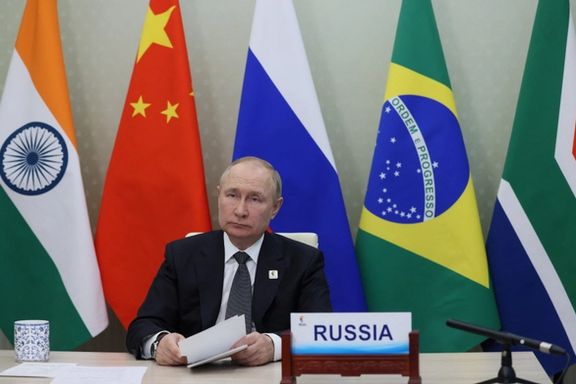
Iran has applied to become a member in the group of emerging economies known as the BRICS, Russia and Iran’s foreign ministry said on Monday.
Iran's membership in the BRICS group, which includes Brazil, Russia, India, China and South Africa, "would result in added values for both sides," Iran's Foreign Ministry spokesperson said.
Russian Foreign Ministry spokeswoman Maria Zakharova said separately that Argentina had also applied to join the group. Argentinian officials could not be reached for immediate comment.
Argentina's President Alberto Fernandez, currently in Europe, has in recent days reiterated his desire for Argentina to join BRICS.
"While the White House was thinking about what else to turn off in the world, ban or spoil, Argentina and Iran applied to join the BRICS," Zakharova wrote on the Telegram messaging app.
Both Iran and Russia are under wide-ranging international and US sanctions, looking for ways to expand trading ties to survive export bans.
Russia has long been pushing to forge closer ties with Asia, South America and the Middle East, but it has intensified its efforts recently to weather sanctions imposed by Europe, the United States and other countries over its invasion on Ukraine.
Iran has long espoused closer ties with “the East”, meaning China and Russia as it has continued nuclear and ballistic missile programs seen as threats by the United States and several regional countries.
The BRICS is not a formal alliance, but a nascent international grouping intended to expand the power of emerging economies in larger international organizations such as the International Monetary Fund and the World Bank.
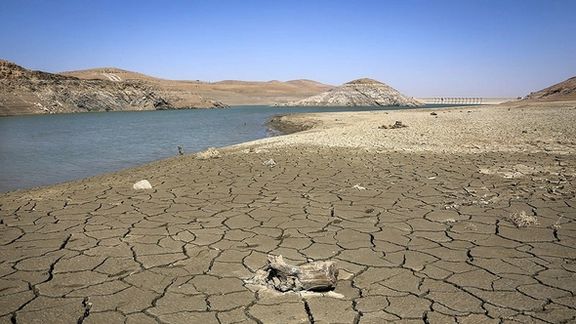
Iran is the tenth producer of crude steel in the world, but the industry with a high demand for water is seriously threatening the country’s scarce resources.
Most of Iran's largest steel factories are located in arid regions such as Esfahan, Yazd, and Kerman provinces despite the very high water use in steel production. 97 percent of Iran’s land is arid or semi-arid.
To produce every metric ton of steel, the industry in Iran uses 230,000 liters of water. According to official figures, the steel industry uses around 70 percent of water reserves of dams, leaving only 30 percent for other industries, agriculture, and urban use.
According to the head of Iran’s National Standards Organization, the industry uses 60 percent more electricity to produce one metric ton of crude steel in comparison with developed countries. The annual wastage of electricity in the industry is around 24 billion KW/H.
At the height of cold and hot months, steel mills have to cope with electricity outages, as usage in Iran is far more than what it can produce. This month, there are reports of industrial plants including steel production shutting down intermittently due to electricity shortages.
The rapid growth in demand for water in Iran – resulting from the growth of population, agriculture, and industries -- has led to severe depletion of available water. The annual renewable water availability per capita reached a crisis level in 2021. Studies by the United Nations Development Program (UNDP) indicate that by 2040 Iran is likely to face a severe water stress level.
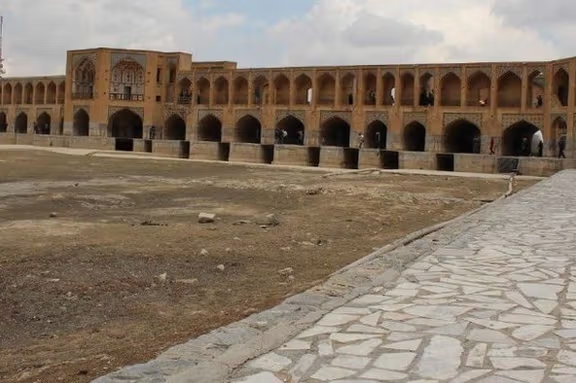
According to official figures, in December 2021, the volume of water stored behind the country's dams had dropped by 44% in comparison with the same month in the previous year.
Iran is also among the ten countries in the world that extract most groundwater and a hotspot of land subsidence induced by groundwater withdrawal. Ground subsidence has become a serious threat in 18 out of the 31 provinces of Iran and has become a threat to around a quarter of Iran’s urban population.
Hydro-electric electricity production amounts to 15 percent of Iran’s total electricity production which also dropped by around 40 percent in the previous calendar year (ended March 20, 2022) in comparison with the previous year mostly due to drought.
According to the World Steel Association (WSA), Iran produced over 28 million metric tons of steel in 2021, putting it just behind Brazil. The country, however, ranked 15th in net exports.
Iran is planning to produce 32 million metric tons of steel in the current Iranian calendar year (ending March 20, 2022) and authorities hope to climb to the seventh place among the world’s top steel producers by the 2025.
Production of all the top ten suppliers, including top steelmaker China, declined in the first 5 months of 2022, except India that had an increase of 6.5 percent. But Iran had the highest drop.
The steel industry has highly contributed to the drying of Zayandeh Roud river in Esfahan Province and seriously damaged agriculture in the region, giving rise to water protests in the past year.
Amid United States' sanctions on Iran's oil exports, steel is one of the main exports earning foreign currency for the government, which faces a serious financial crunch.

Iran’s foreign minister has traveled to Turkey to bolster ties with Ankara amid Israel’s repeated warnings about terror plots by the Revolutionary Guard against Israeli citizens there.
Hossein Amir-Abdollahian held a joint press conference with his Turkish counterpart Mevlüt Çavuşoğlu before he held a meeting with President Recep Tayyip Erdoğan on Monday.
Amir-Abdollahian, whose plans to visit Ankara had earlier been cancelled twice because of IRGC's plot to harm Israelis in Turkey, said during the presser that, “We consider the fake Israeli regime as the number one enemy of Muslims and the Islamic world.”
Earlier in June, Turkey reportedly warned the Islamic Republic against attacking Israelis in Turkey, saying it is not prepared to allow Iran to use its territory to carry out acts of terrorism against other nations.
According to Iran’s top diplomat, the EU's foreign policy chief’s recent trip to Iran was also discussed with his Turkish counterpart. “I briefed my brother Mr. Cavusoglu on the visit to Tehran by Mr. Josep Borrell... and our agreement to continue negotiations on the removal of sanctions. We hope that in the new round of the negotiations between Iran and the other parties we will achieve a final agreement, if the United States and three European countries act realistically.”
He told reporters that Tehran would not oppose a new proposed Turkish military operation targeting Kurdish forces in Syria, saying that “We understand Turkey’s security concerns very well.”
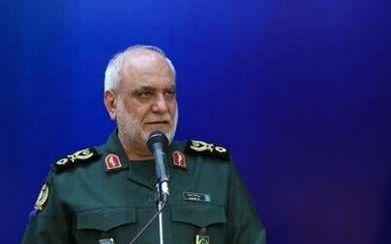
Iran's Supreme Leader Ali Khamenei has appointed a new IRGC intelligence security chief following a series of similar high-level changes last week.
Defa Press, the news agency of Iran’s Armed Forces, reported Monday that Brigadier General Majid Khademi, head of the Defense Ministry’s Intelligence Security, has been appointed by the Supreme Leader to succeed Mohammad Kazemi as the new chief of the IRGC Intelligence Organization’s information security (SAS InfoSec).
Kazemi replaced the controversial cleric Hossein Ta’eb as chief of the IRGC Intelligence Organization (SAS).
The SAS IntelSec is responsible for protecting the IRGC against espionage, infiltration by undesirable political fractions, leakage of secret information to the outside as well as political and security monitoring of the forces’ commanders and the staff. The organization is directly accountable to the Supreme Leader and works under his supervision.
Ta’eb’s replacement after 13 years at the helm of SAS which was announced on Thursday came as a big surprise and fueled many speculations about the reasons for his dismissal.
The change considered to be a pivotal move by Supreme Leader Ali Khamenei came after a series of unexplained deadly attacks against IRGC officers and other breaches of security in Iran’s nuclear and military installations.
On June 19, following Ta’eb’s recent threats against Israelis, the Israeli Prime Minister Naphtali Bennet said that Israel would continue to strike those who send terrorists to attack Israelis in various overseas locations. “Our new rule is: Whoever sends – pays,” he said. This has been interpreted as a direct threat against the head of the IRGC’s SAS.
Taeb’s dismissal has also been linked to Turkey's announcement Thursday that the National Intelligence Organization (MIT) thwarted a planned attack against Israeli diplomats and tourists in Istanbul. MIT said that it detained eight suspects allegedly working for an Iranian intelligence cell.
There are also rumors that Ta’eb was replaced due to long-simmering opposition by other top security figures, including the chief commander of IRGC’s Quds (Qods) Force Esmail Ghaani (Qaani) and Intelligence Minister Esmail Khatib.
Media linked to the IRGC such as Javan newspaper have downplayed the importance of Ta’eb’s dismissal, claiming that the shift in the leadership of the IRGC’s SAS by Khamenei was nothing out of the ordinary and should even be considered as a step towards an “intelligence onslaught on the enemy” and an “increase in operations against Israel” by the SAS.
On Saturday, two days after Ta’eb’s dismissal, which officials say was a mere shift in positions, the head of the IRGC's special unit responsible for the Supreme Leader’s protection (Sepah-e Vali-ye Amr) was also replaced. Sepah-e Vali-ye Amir is solely responsible for protection of the Supreme Leader. It was officially established in mid-1980s and is believed to consist of as many as 12,000 highly trained forces.
In an interview with the Iranian Labour News Agency (ILNA) Monday, hardliner lawmaker Mohammad Kowsari who hails from the top brass of the IRGC stressed that Ta’eb’s replacement was normal after his long years in the position.
The IRGC Intelligence Organisation (SAS) was created by Supreme Leader Ali Khamenei in 1997 after the election of reformist President Mohammad Khatami and gradually turned into an organization with broad powers and responsibilities.
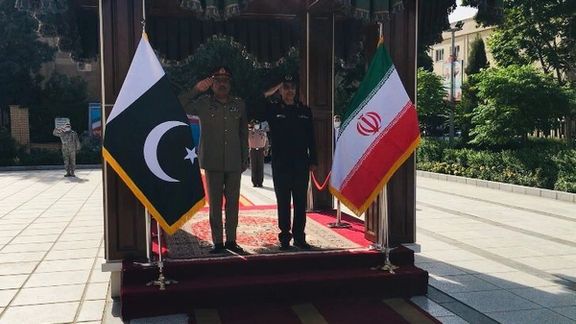
Iran says Israel’s integration into the US Central Command (CENTCOM) and its participation in joint military drills with regional countries constitute a great threat to the Middle East.
Chairman of the Chiefs of Staff of the Iranian Armed Forces Major General Mohammad Baqeri made the remarks on Monday during a meeting with his Pakistani counterpart Lieutenant General Nadim Reza Nishan, noting that “Iran will not tolerate such threats and will certainly respond to them.”
Describing Israel as a destabilizing force in the region, he said, “The regime, through the implementation of certain plots, seeks to forge relations with regional countries and achieve its interventionist goals.”
Last week, Israeli Defense Minister Benny Gantz said, “I have been leading for the past year together with my colleagues at the Pentagon and the [Biden] administration an extensive program to strengthen cooperation between Israel and the countries of the region, under American leadership and CENTCOM.” “Part of that vision is what I call MEAD, Middle East Air Defense, which we are building amid Iran’s attempts to hit the region’s countries with rockets, cruise missiles and UAVs [unmanned aerial vehicles, or drones].”
Israel is improving relations with the Persian Gulf monarchies especially since the 2020 ‘normalization’ agreements with Bahrain and the UAE, arguing they face a common threat in Iran.
Seriously concerned about the growing ties, the Islamic Republic has repeatedly warned neighbors against allowing Israel to establish presence in the Persian Gulf.
Iran's IRGC Navy commander said earlier in June if for whatever reason someone allows “the number one enemy” into the Persian Gulf, it will create “chaos and instability” both for itself and for the region.